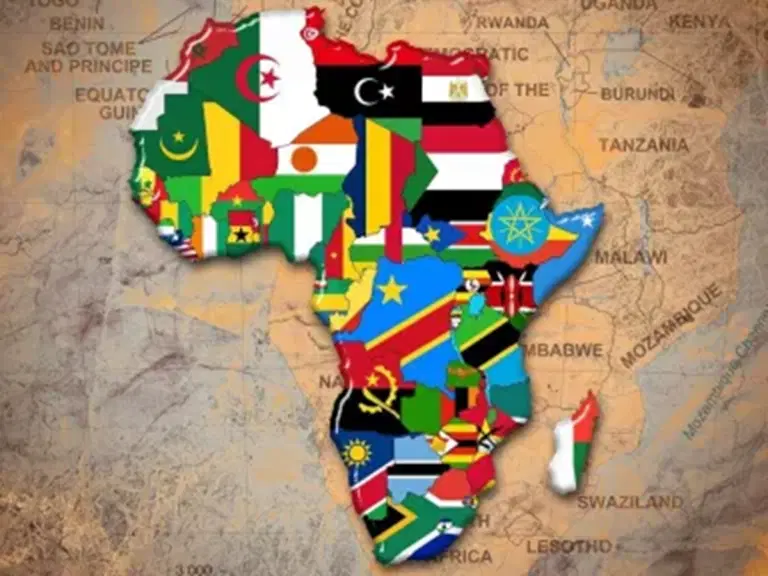10 mn readYou spoke to the Daily Trust on Saturday, October 19, 2024. The rare interview, conducted by Andrew Agbese and Isiaka Wakili, marked your 90th birthday anniversary.
In it, you celebrated revisionism and claimed things that were not backed by evidence. This open letter is to point out and correct your horrendous amputations of contemporary Nigerian history. It is a necessary exercise because, as your Christian faith commands and as your fellow Christians profess, “You will know the truth, and the truth will set you free.” John 8:32.
Your interviewers asked this question: “You are committed to Nigeria’s unity; how did you take it when the civil war broke out?” You gave a long-winded answer that portrayed you as an all-time champion of national unity. But, if you remember that as Head of State, you said in your maiden nationwide broadcast on Monday, August 1, 1966, that there was no basis for Nigerian unity, your self-description as a permanent apostle of national unity stands out as perverse. This is another claim of yours: “My duty and profession at that time demanded to make sure that we kept the country together. And that was how it happened.”
Sir, with the most profound respect, that was not exactly how it happened. In that historic broadcast of yours, you were going to declare a Republic of Northern Nigeria. In it, you said inter alia: “As a result of the recent events and of previous ones, I have come to strongly believe that we cannot continue in this wise, as the basis for trust and confidence in our unitary system of government has been unable to stand the test of time. I have already remarked on the issue in question. Suffice it to say that putting all considerations to the test, political, economic as well as social, the basis of unity is not there…”
Because you had discounted the basis of national unity, your declaration of the Republic of Northern Nigeria was to follow as a matter of course. But America and Britain stayed your hand. Various manufactured and deodorised versions of your broadcast have for decades been flying all over the place. But they cannot obscure the adamantine truth. The BBC transcript of your broadcast is reproduced in A. H. M. Kirk-Greene’s Crisis and Conflict in Nigeria: A Documentary Sourcebook 1966-1970, Oxford University Press, London; 1971. For a tiny fee, anyone can pick up a voice recording of the broadcast from the BBC Monitoring Service. Similarly, the denials of your intention to declare secession are in vain. Suzanne Cronje, the South African socialist writer, and historian had quoted Professor Eni Njoku, a former Vice Chancellor of the University of Lagos, and Sir Louis Mbanefo, a former member of the Nigerian Bench and the World Court at The Hague, as telling her what they had heard from Sir Francis Cumming-Bruce, the British High Commissioner in Lagos, to wit that he had dissuaded you from sundering Nigeria. (See Suzanne Cronje, The World and Nigeria: The Diplomatic History of the Biafran War, 1957-1970, Sidgwick & Jackson, London, 1972; page17.
People may discount Professor Cronje’s testimony as speculative. But they cannot do the same to the minutes of the meetings of the British Parliament. The minutes of the meeting of August 2, 1966, were released by the British Government after the mandatory 30-year period of moratorium. It confirmed your secessionist predilection: “The Commonwealth Secretary (The Right Honourable Arthur Bottomley, MP) said that there had been a further mutiny in Nigeria and that Major General Aguiyi-Ironsi, the Head of State, had been kidnapped and possibly killed. A L-Col Yakubu Gowon, who was Hausa from the Northern Region, had assumed charge of the Government with the support of the Supreme Council. He had been strongly advised by our own High Commissioner and the United States Ambassador against promoting the secession of the North from the Federation.” (See the document marked CAB/128/41 at the British Public Record Office – now known as the National Archives UK – at Kew Gardens in London.)
Given the above paragraph, commentators on your fabulous Daily Trust interview could ask you to tell your story to the Marines. The secessionist bug hit you nearly a year before it coasted to General Ojukwu. You were going to create a Northern Nigeria Republic because the January 15, 1966 coup had cost seven northern lives. But for Ojukwu, who, following your countercoup of July 1966 – the bloodiest putsch in African history – lost 38 Igbo officers and 128 other ranks, not to mention the 50,000 of his kinsmen and women massacred in the pogroms that took place across much of the country between May and October 1966, the S-word had to remain anathema.
But to continue with the redressing of your bastardisation of Nigeria’s history. A plethora of falsehoods surfaced in the wake of the January 1966 action, all of which adorned you with the garland of the gallant officer and gentleman who put down the mutiny. The lies burnt through the pages of countless newspapers, and magazines, and were further perpetrated in book forms by Professor J. Isawa Elaigwu in Gowon: The Biography of a Soldier-Statesman, West Books Publisher Limited, Ibadan; 1986, and John D. Clarke in Yakubu Gowon: Faith In A United Nigeria, Frank Cass, London; 1987. Strangely enough, you are still happily stuck in this fictional quagmire – 58 years after the event.
This is what you told the Daily Trust: “When I met him (Captain Martin Adamu) and asked what the commotion was about, he said General Aguiyi Ironsi, who was the General Officer Commanding (GOC), came and told them that there was some crisis in town affecting the prime minister, Tafawa Balewa and Okotie Eboh, the finance minister and he had come to seek some assistance to see if he could deal with the problem. My first reaction was: Why Ironsi? Why not the brigadier because the chain of command should have come through him? Ironsi should have told the brigadier, who would have related to the battalion commander. However, I asked where he was and he said he was at the master parade area. So I had to change into civil clothes to see what was happening. When we got there, he briefed me, saying that he wanted some units to be prepared so that they could go and deal with the situation. When he finished, he asked if there were questions. I did not know that by that time, all the senior officers from my school – Maimalari, Kur Mohammed, Lt Col Abogo Largema, Yakubu Pam – had been killed. One of my good friends, Arthur Unegbe, from Ozobulu was also killed and I didn’t know. I went and I got the Quarter Master to get me some military uniforms, boots, hat etc and I went into town. Luckily enough, we were able to deal with the coup in Lagos.”
count, Sir, it is obvious that you hadn’t crushed the coup because the order to crush it was given by General Aguiyi-Ironsi. And he never gave any orders to you because you had no command at the time in point. It did not strike you as reasonable to give credit to two courageous officers who, with Ironsi, had been at the cutting edge of the operation. I refer to Lieutenant Colonel Hilary Njoku and Captain Hans Anagho.
This is Colonel Njoku: “Having got the battalion in motion, I turned to the General Officer Commanding to spell out the task he had for us. The General Officer Commanding is not normally the person to give orders directly to a battalion. It should come through the proper channel, i.e. via Brigade Headquarters. In that emergency situation, the General Officer Commanding was acting in order. …The General Officer Commanding asked for paper and pen. These, I provided. He wrote down the key points (KPs) and very important personalities (VIPs) to which troops were to be sent for protection. These included the Nigerian Broadcasting Corporation (NBC), the Parliament House, Post and Telecommunications (P&T), the Prime Minister, the Inspector General (IG), the Brigade Commander – No 11 Thompson Avenue, etc. In addition, he listed some of the officers he wanted apprehended. These included Major Ifeajuna, Captain Oji and Lieutenant Nwokocha…My Order Group (‘O Gp’) was ready in my room. I had moved apart to prepare my orders leaving him and Jack behind, although all of us were still in my office. As soon as I was ready, I moved to my conference room. They both followed me. The adjutant called all to attention. I stood them at ease and went straight into my orders. At the end, the General Officer Commanding said nothing but Jack said a few words emphasising what I had already told the officers. “B” Company under the command of Captain Hans Anagho, the Cameroonian, was ordered to move to the Parliament building, Nigerian Broadcasting Corporation (NBC) and Police Headquarters. Jack (Gowon) decided to accompany them… (See Hilary M. Njoku, A Tragedy Without Heroes: The Nigeria-Biafra War. Fourth Dimension Publishers, Enugu, 1987, page 19.
While writing Ironsi’s biography, I had traced Colonel Anagho and asked his reaction to the story that you had led the troops that suppressed the January 15 action. His response: “Gowon knows very well that it was my company, “D” Company, 2nd Battalion, Nigerian Army which occupied Lagos from Ikeja, as spearhead of the loyal troops. Records show and history will tell that I was the commander of that Company. (See Chuks Iloegbunam, Ironsi: Nigeria, The Army, Power And Politics, Eminent Biographies, Awka, 2019. Page 5. Colonel Anagho, for years a traditional ruler in Cameroon, is only a phone call away.
So much for your mythic coup crushing!
You waxed lyrical on your regime’s adherence to the protocols of the 1949 Geneva Conventions during the civil war: “The soldiers were given what we called a list of dos and don’ts like all the Geneva Convention instructions in any international conflict. There were about 12 conditions, such as not permitted to fight against old people, women, children etc. It was only against those who took up arms against you; that’s all.”
As someone in Biafra during the hostilities, I am not persuaded that your forces knew a thing about the Conventions you covet. What you prosecuted was a genocidal war. One may refrain from talking about the millions, mostly children, that perished from starvation and kwashiorkor because of your blockade of Biafra. After all, your junta made it clear from the onset that “starvation is a legitimate instrument of warfare.” One may also not talk about Asaba of October 7, 1967, where your soldiers massacred a thousand indigenes of the town. After all, Major General I. B. M. Haruna insists to this day that the Asaba genocide never happened.
We may just casually glimpse at the glorious, Geneva Conventions-coated work of your Air Force: On September 6, 1968, your Air Force bombed a hospital in Ihiala, killing 30 patients and seriously wounding 60 others, according to the New York Times. It bombed Otuocha, Aguleri on September 18, 1968, killing 510 and wounding over 1000 (Associated Press). On September 2, 1968, it bombed the Our Lady of Lourdes Hospital, Ihiala, killing 75 and wounding 270 others (New York Times). On October 13, 1968, it bombed the Uzuakoli Leper Colony, killing 21 and wounding 50. (Associated Press). On December 13, 1968, it bombed Umuahia, killing 27 and wounding 100. (Reuters). The next day, December 14, 1968, it bombed Umuahia again, killing 20 and wounding 187. (Reuters). On December 21, 1968, it bombed Umuahia yet again, killing 43 and wounding (Agence France-Press). On February 7, 1969, it bombed and strafed Umuohiagu market, killing 200. (Associated Press). On February 26, 1969, it bombed Ozu-abam killing 120, (New York Times). On the following day, the death toll jumped to 250. On March 11, 1969, it bombed Umuahia, killing 35. (Associated Press). On September 10, 1969, it bombed Ojoto, killing 16. (New York Times).
These are just eleven examples of your Air Force’s atrocities in Biafra. Overall, the bombing and strafing of innocent Biafran civilians numbered in the hundreds because it was a daily occurrence, for which the gloating members of your War Council and your fighter-pilots that included Egyptian soldiers of fortune nicknamed Biafra as a Free Bombing Site. Of course, governments, humanitarian agencies, and civil rights voices systematically damned your dreadful repudiation of the Geneva Conventions. To give two instances: On March 7, 1969, the United States expressed “deep concern” over reports of the massacre of Biafran civilians by the Nigerian Air Force. Robert J. McCloskey, the State Department spokesman, said that “Elbert Matthews, United States Ambassador in Lagos, had been instructed to bring to the attention of Nigeria’s Federal Military Government reports of bombing of hospitals, markets and clinics by Nigerian aircraft.” (New York Times). On March 24, 1969, Dr. Jacques Freymond, the acting president of the International Committee of the Red Cross protested “to the Nigerian Government over the bombing of civilians in Biafra.” (New York Times.)
Dear General Yakubu Cinwa Gowon! Your claim to have waged the Biafran by the protocols of the Geneva Conventions is bunkum.
Your Daily Trust interviewers put this question to you: “If given another opportunity, what would you have done differently?” Your response: ”I don’t think I would have done anything differently.” You have no regrets on your nine-year leadership of Nigeria. This astonishing disposition points to your appropriation of a personal sense of infallibility. But many other world leaders have been quick to acknowledge their mistakes. President Barrack Obama regretted what he called the greatest mistake of his presidency, which was his ousting of Libyan leader Muammar Gaddafi without a plan for managing the vacuum that ensued. Former British Prime Minister Tony Blair accepted “full responsibility without exception or excuse” for the dire consequences of the Iraqi war into which he pushed his country. For that, he expressed “sorrow, regret and apology.”
I have the presence of mind to acknowledge that American and British examples of remorse may be too distant for your comfort. I will, therefore, lead us back to West Africa, precisely to Accra, Ghana where during June 1979, Flight Lieutenant Jerry Rawlings’ Armed Forces Revolutionary Council (AFRC) court-martialed and executed three former military Heads of State – Kutu Acheampong, Akwasi Afrifa and Fred Akuffo, as well as Generals Kwaku Atuka and Robert Kotie, Rear Admiral Joy Amedume, Air Vice Marshal George Boakye, and Colonel Roger Felli. Rawlings and his cohorts defended the purge as anti-corruption. The rabble cheered vociferously. Time, the healer of all wounds and the wounder of all heels, passed. Then it dawned on Rawlings that a grievous injustice had been perpetrated under his watch. The process that led to the executions was flawed. In contrition, Rawlings, with the national media in tow, went from church to church disavowing the bloodletting and pleading for forgiveness. But you, General Gowon, regret nothing…
Well, there is a short story to introduce at this juncture. Lieutenant General Theophilus Danjuma told the story of the kidnap and assassination of General Aguiyi-Ironsi on July 29, 1966. He told you by telephone that he and his troops had stormed the Governor’s Lodge in Ibadan and were poised to arrest General Aguiyi-Ironsi. You asked: “Can you do it?” Danjuma replied: “We’ve got the house surrounded and sealed off Sir. We can do it.” Following this response, you sanctioned the move. General Danjuma is still alive. (See Lindsay Barret: Danjuma: The Making of a General, Fourth Dimension Publishers, Enugu, 1980, pp 52-53.) At the time you told the leader of a mutinous horde that it was splendid to seize Aguiyi-Ironsi, you were holding down the exalted office of Army Chief of Staff at the General’s pleasure. Is there a chance that your betrayal of your Supreme Commander is one of those decisions of your past for which you have no regrets?
Leaving the upheavals and treacheries of the second half of the 1960s severely alone for the time being, let’s examine two of your other fatuous claims. You told your interviewers that you established “petrochemicals in Enugu” and “Volkswagen in Enugu”. No, Sir, you most certainly did not. Unless there are two Enugus, and your reference was to an Enugu that is unknown to humankind. As a matter of fact, you never established a single thing in the former East Central State which is now the South East geopolitical zone. Rather, what your junta “established” was the relocation of the steel mill penciled for Onitsha to Ajaokuta, a project that has guzzled billions of dollars without producing a single sheet of steel to this day.
It is laughable that you alluded to the “success” of your post-war policy of three Rs: Reconciliation, Rehabilitation, and Reintegration. This is even though, irrespective of whatever a Biafran had in any Nigerian bank before the civil war, your government paid him a miserly £20. In the name of Abandoned Properties, you presided over the seizure of thousands of Igbo-owned houses in Port Harcourt. Yet, when your trusted lieutenants tossed you from office in 1975, it was an Igbo man that provided a London mansion in which you, your wife and children lived coyly for many years! Your Three Rs amounted to no more than meaningless sloganeering.




















